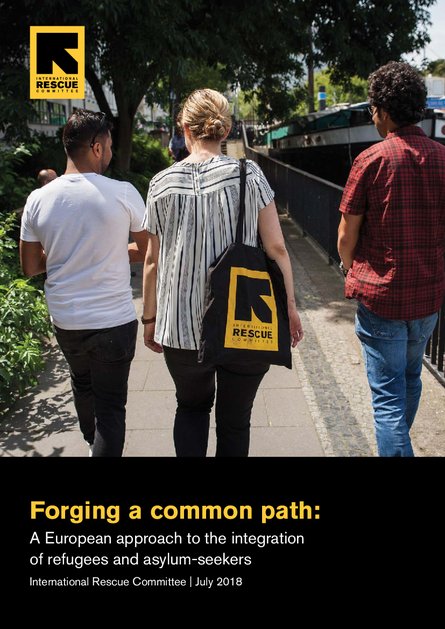
The European Union (EU) is at a unique turning point at which it is vital to invest in the integration of people who have sought protection here. While their integration is key to wider societal cohesion and fostering an environment that is more welcoming to all, this group faces specific challenges and barriers to integration stemming from the changing nature of global displacement, structural issues in member states exacerbated by high volumes of arrivals in 2015 - 2016, and certain aspects of asylum policy at the EU and national levels. These issues are widespread, persistent and likely to be exacerbated if not addressed immediately and with a long-term, structured approach.
Humanitarian organisations, particularly those like the IRC which has experience in working with displaced persons across the arc of the crisis – from the moment of displacement to their local integration or resettlement to a third country – have a unique contribution to make in supporting the integration of refugees and asylum-seekers in Europe, in both policy and practice. Our global experience shows that continuous support is needed to address acute needs as well as to enable people to thrive and regain control of their lives as soon as possible after displacement, and that successful integration is to the benefit of receiving societies as well as people seeking protection.
This report argues that the EU has a key role in putting this into practice, and that the implementation of the European Commission’s Action Plan on Integration coming to an end in June 2018, ongoing discussions about the restructuring of EU funding for integration and a new Commission in 2019 create an ideal moment to reflect on the shape and extent of future EU action on integration.
